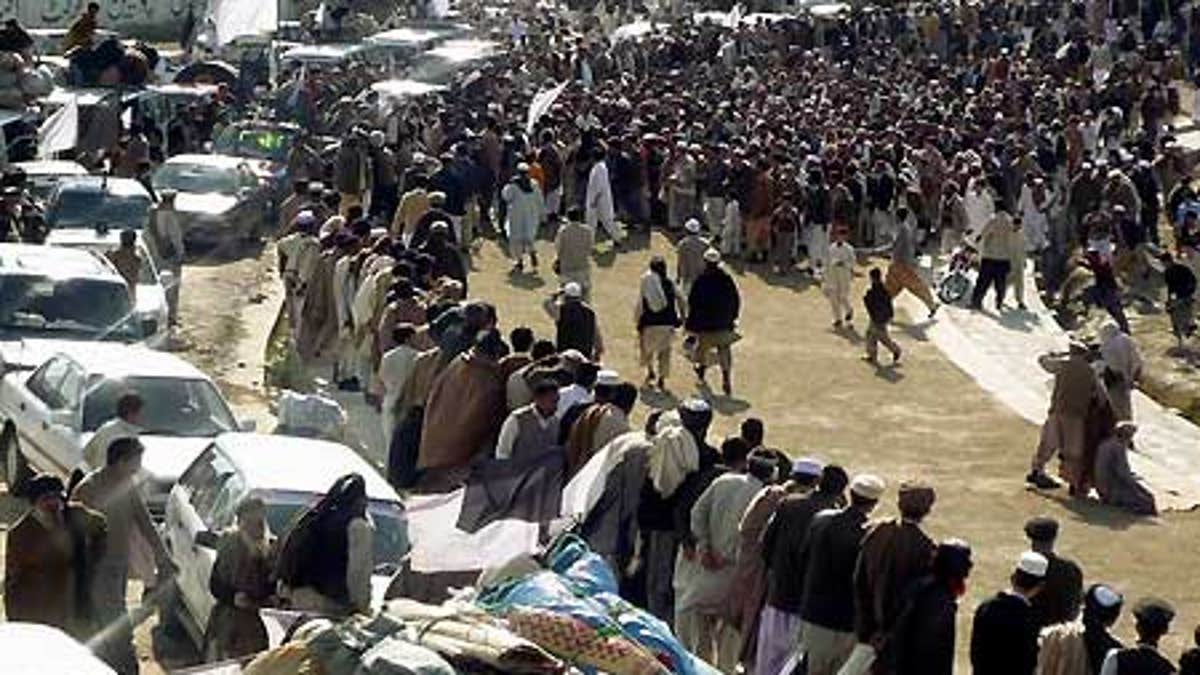
Feb. 17: A crowd gathers in Mingora, a city in the troubled Swat valley, Pakistan. (AP)
ISLAMABAD – Taliban militants indefinitely extended a cease-fire Tuesday in a northwestern Pakistani valley, granting more time for peace talks that the United States worries could create an insurgent haven in the nuclear-armed country.
Troops and insurgents have observed a truce in the Swat valley since Feb. 15, when Pakistani authorities offered to introduce Islamic law in the region if militants lay down their arms. A hard-line cleric is negotiating a possible deal on behalf of the government.
The Taliban cease-fire was due to expire on Wednesday, but spokesman Muslim Khan said insurgent leaders decided to extend it "for an indefinite period."
"From our side, there will be no hostility against the government and the army, and we expect the same from them," Khan told The Associated Press.
Late Monday, militants in Bajur, another northwestern region, announced they would observe a cease-fire with government troops there. The military, which claims to be close to victory in Bajur, has not commented on the move.
Pakistani officials say the offer to introduce Islamic law in Swat and surrounding areas addresses long-standing demands for speedy justice that have been exploited by the Taliban, which residents say now control much of the picturesque region once popular with tourists.
But NATO and the United States have voiced concern that any peace accord could effectively cede the valley to militants who have defied a yearlong military operation, beheaded opponents and bombed girls' schools.
Many analysts doubt the Taliban will accept the mild version of Islamic law on offer — or that they will loosen their grip on the valley, which lies just 100 miles (160 kilometers) from the capital, Islamabad. A deal last year collapsed after several months.
The status of the talks and each side's positions are not clear. On Monday, the cleric dispatched by the government to talk to the Taliban urged both sides to dismantle checkpoints. He gave no indication what form a final agreement might take, nor when that was likely to happen.
The Swat Taliban have not clearly stated they will disarm or allow the free movement of women and schooling of female children. Pakistan's president has said he will not sign the law imposing Islamic justice until peace has returned to the valley.
Pakistan says it is committed to regaining control of the northwest, but American officials have expressed skepticism about the willingness and ability of its security forces and have ratcheted up missile strikes on al-Qaida targets there.
Its army chief and foreign minister are holding talks in Washington this week as the new U.S. administration hammers out a new policy for the region.
